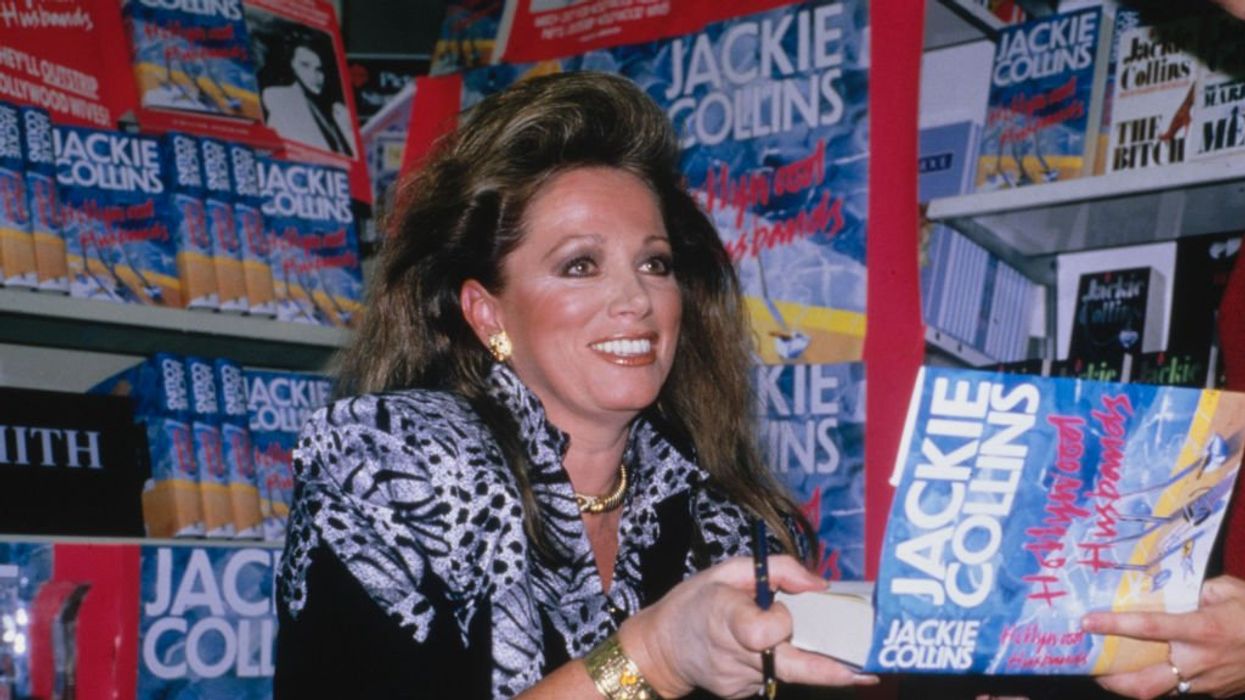
Getty Images/Vinnie Zuffante
We paid America's most beloved authoress to tell you how.
So, you want to be a writer? Me too.
Before I give you my short lesson on writing for dough, allow me to fill in my supervillain origin story.
I always wanted to be a writer. Well, first I wanted to be a doctor like my dad, but then I got a D in chemistry and came to my senses. Writing it would be.
So, I graduated from a nice “elite” college with a BA in English literature, where I read (and pretended to read) books and wrote papers but didn’t take a single writing class of any kind.
My dad loved to tell me the Jay Leno bit about being an English major. Leno would do an impression of a guy interviewing people for a job. Looking at your résumé, he would say, “So, you were an English major? OK, great. Take cab No. 7.”
The first writing job I wanted was to write for David Letterman. If you’re my age, maybe this was your dream, too.
I watched the "Late Show with David Letterman" religiously on school nights from 12:30 until 1:30 a.m., and then I would fall asleep in class the next day. I considered this a worthy sacrifice; I was studying for my future as a "Letterman" Top Ten List writer.
I also wanted to be a magazine columnist, perhaps writing delightfully wry humor columns for the New Yorker or Spy or Details, drinking dirty Ketel One martinis while I typed, a Gen X Dorothy Parker. I also wanted to be a TV comedy writer.
That was it. Those were my three dream jobs, and, basically, I never wavered. I worked for my college's equivalent of the Harvard Lampoon, where it was my job to write satirical columns on current events and D-list celebrity profiles. I had to interview Pauly Shore, who was actually sort of B-list for a minute, for a national magazine. A simpler time, folks.
I wrote the anonymous campus gossip column, too. People would call in reports to the paper’s office, and I would write up saucy blind items. When the paper came out, I’d sit in class and watch my fellow students read it, giggling and whispering.
So innocent. Don’t judge; we didn’t have cell phones yet.
Then, I graduated and got an unpaid internship as an editorial intern at Andy Warhol’s Interview magazine, earning zero dollars.
Once, they sent me to deliver something to publishing impresario Hal Rubenstein’s apartment. It was in the fanciest 5th Avenue building, and it was literally 250 square feet. Interview’s infamous editor Ingrid Sischy was the worst human being I’d ever encountered: 4 foot 11 of hideous, raging lesbian energy. If you weren’t famous and cool, you might as well go kill yourself.
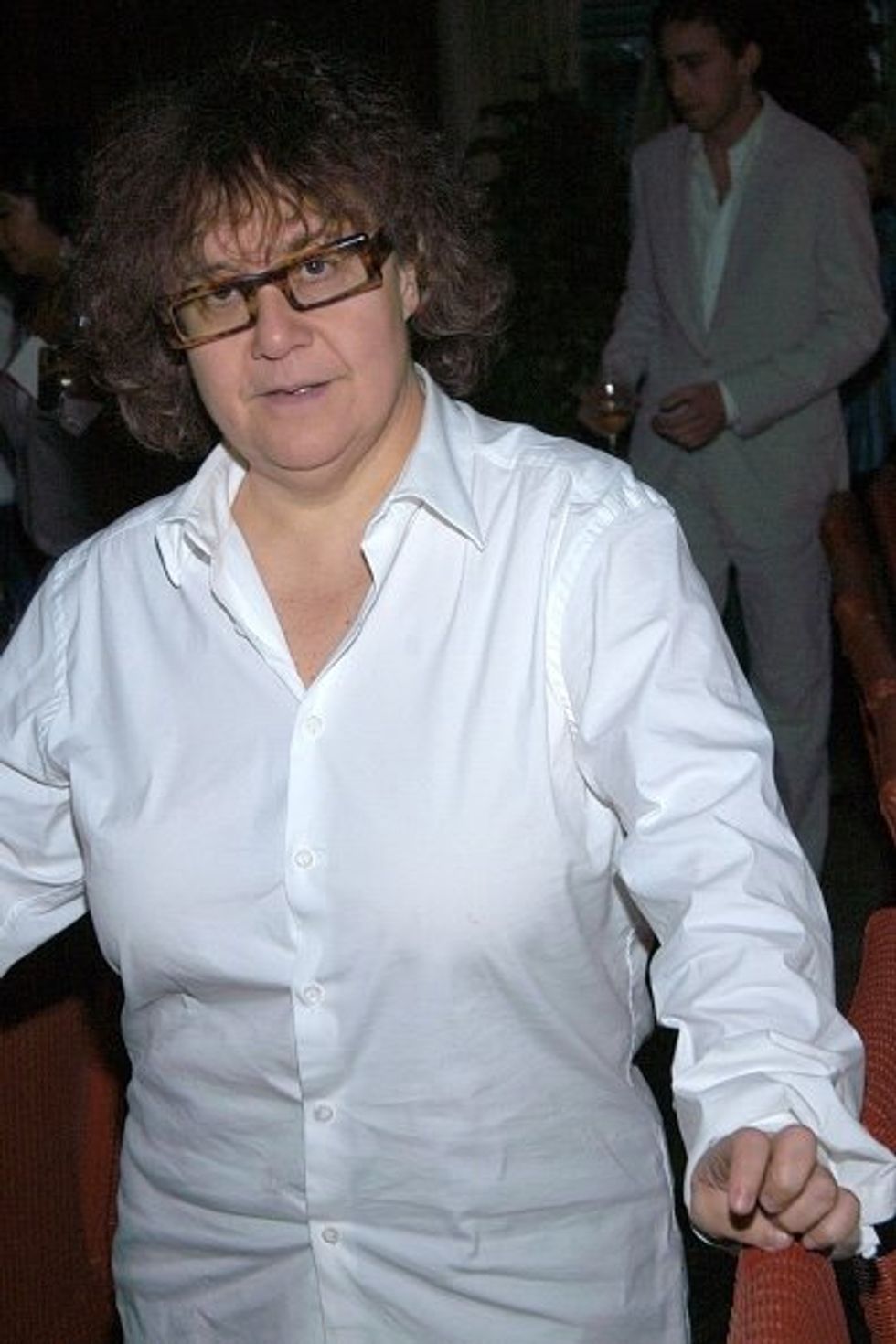
She was my first post-college boss.
At the time, the office scandal was that she was dating the billionaire publisher Peter Brant’s socialite wife. (Peter later married supermodel Stephanie Seymour; such was life in '90s downtown New York.)
Then I moved to Paris, where I was hired as managing editor (LOL) at a fly-by-night magazine for expats run by an insane, alcoholic British woman, who was doing it for the free champagne and the tax write-off. This was fun because it was a collection of American and English 20-year-olds working illegally and getting to go to free events.
I did get to meet a lot of actual writers. I liked to party with smart, funny people, so I used to hang out with, for example, the "Simpsons" writers a lot. But honestly, what an unbelievable collection of giant nerds they were. They were so nerdy that I think it’s one of the reasons, besides laziness, why I never finished a spec script. Who wants to be in a room all day trying to out-nerd the nerds? Have you guys seen what Matt Groening looks like? And the younger writers were even less sexy.
When I moved back to L.A., my college friends were suddenly getting jobs writing for famous sitcoms. All I had to do was finish my spec scripts, get an agent, and I’d be off to the races. In the meantime, I worked for Larry Flynt Publications, writing fun quizzes for some of their wholesome teenage magazines. (Larry Flynt published a ton of mags, beyond their "Hustler" flagship.) I became a writer’s assistant to a famous, nay, legendary, writer, which involved driving her to meetings with producers, shopping with her, hearing about her new diets, doing tech support, and helping her write pilot scripts.
I thought I was funnier than she was, but I found the people I met so repulsive that I never finished my spec scripts. Turns out that most of success really is perspiration, not inspiration, and I didn’t like to break a sweat.
I also survived a memorable dinner date with this famous author — maybe you’ve heard of him?
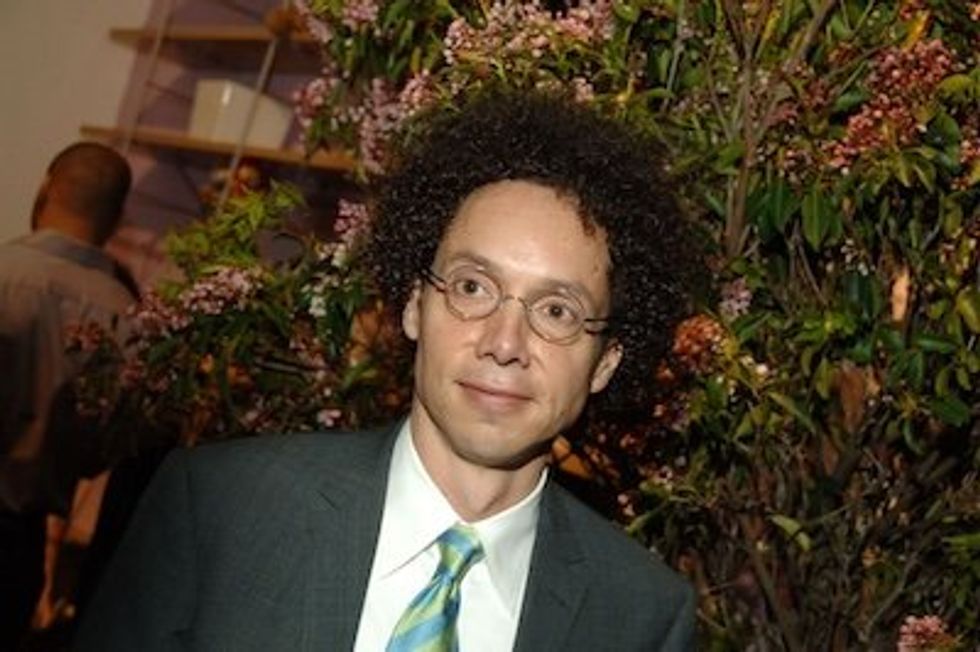
Yes, that Malcolm Gladwell. This episode become lore among my friends. At the time, I was new in town and had been put in touch with him through friends for “networking purposes.” When we walked into the trendiest restaurant in Manhattan, I realized much too late that this was not a business networking dinner. I had been tricked!
As my petty revenge for blindsiding me, I didn’t ask Mr. Gladwell about his new book, which was at the time the number-one bestseller in the country. I refused to even let on that I knew about his book.
After dinner, I hadn’t figured out how to escape yet, so we went to a dive in the Meatpacking District, and finally, he got the picture that our networking event was not going to progress beyond a handshake. He raised a hand as a farewell salute and left me alone in the bar, saying, “I’ll be in touch,” in an annoyed way.
Reader, we were not in touch ever again.
Even funnier was a series of innocent encounters I endured with the writer Dave Eggers at the height of his Gen X stardom. Dave Eggers was arguably the last semi-famous male American novelist, and he’s spent the past 20 years apologizing for being a successful straight white male author by embracing basic NPR liberalism and groveling philanthropic enterprises.
Once, he invited me to go with him to the Los Angeles Book Fair. At this staid event, more than one woman came up to me at the event demanding to know how I had pulled off such a coup. I had to resist the urge to tell the starstruck women that Eggers was nothing; after all, I had once interviewed the Weasel himself, Pauly Shore!
This was in the early 2000s, when you could still attain moderate rock-star status as a writer. (E.g., Jonathan Franzen and hoaxer James Frey, who wrote the fake memoir "A Million Little Pieces.")
Which reminds me that I also met James Frey at some point through friends!
Folks, our supply of famous American male writers has dwindled. These days, I sometimes hang out with writers who I consider wildly talented superstars, but their fame and renown is limited to the dissident right ghetto, at least for now.
You know who you are.
Reader, I never finished my TV spec scripts. Instead, I got my first in a string of writing day jobs. These jobs paid well, I was completely financially independent, and I could afford a car and an apartment by myself and have fun. I was an instructional writer for an early software firm, a content strategist at a web development company, a writer for some entertainment startups, an advertising copywriter, and then an in-house copywriter at some big entertainment studios.
These jobs mainly required me to write consumer-facing marketing copy to sell products, promote movies and TV shows, advertise brands, and so on. Lots of short, quippy prose, catchy taglines, TV commercial scripts, product names, “digitized optimized copy for UX design,” calls to action, and more.
I would spend days coming up with the perfect short header for a screen on an app. The name for a button. Categories for different types of content. Long-form descriptions that perfectly described the sensory experience of the thing in question.
I quit all the full-time jobs to stay home with my baby. A friend who designed websites got me a freelance job writing all the copy for a cannabis farm. I had to write the descriptions of each type of marijuana the farm sold, describing what the high would feel like for customers.
I hate weed. I loathe weed. But this client had money.
The client offered to send me samples of different joint flavors to help inspire my writing. I was seven months pregnant and declined.
Of course, I was also writing much more wholesome stuff for a (then) family-friendly company.
Corporate America used to hire copywriters to do this kind of thing and pay them six-figure salaries!
But those glorious days are behind me now. Ships are burned to a crisp.
My days are spent navigating the wild world of pseudonymous posting on X, pseudonymous posting on Substack, pseudonymous contributions to various right-wing magazines, and working on my next pseudonymous bestseller.
So, you still want to be a writer? LOL. LMAO.
Men should not be full-time writers unless they are highly paid Hollywood screenwriters or bestselling nonfiction writers. You can’t really “make a living” doing this in a meaningful way.
But sometimes you have to do it anyway. I get it. Welcome.
If you’re still reading, here are ways you can do it:
Substack! X! Next Door! Start posting stuff.
Do corporate marketing and ad copywriting jobs still exist? I think so. Although in the age of AI, copywriters are sure to become extinct. I mean, sure, you can come up with the most clever puns in the world, but most of it is writing stuff AI can probably do ok.
How do you get one of those jobs? Make a portfolio of samples and start applying. It’s easy now; you can use Canva and make fake ads with fake taglines, draft some web copy for a dummy company. It will look real enough and the screenshots will work fine as specs.
This is a fake spec ad I made that I used in my very first portfolio. It got me lots of jobs:
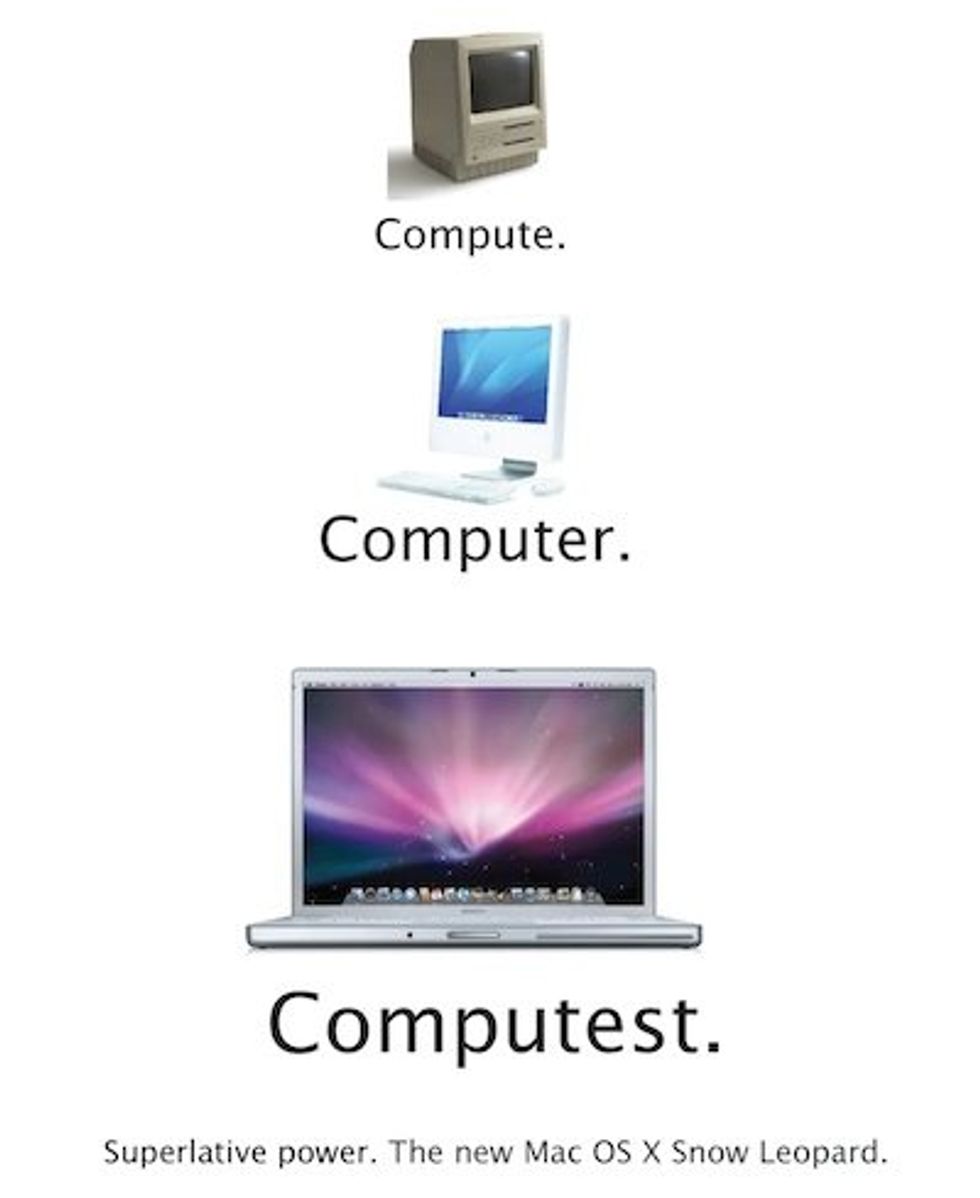
However, if you dream of writing gay Super Bowl commercials for Bud Light or Coke or something, you need to go to Book Shop, which is the USC Film School of becoming a highly paid ad agency copywriter. Everyone I know who became a successful writer of beer and car commercials has a portfolio from Book Shop.
Good luck!
You need spec scripts as writing samples. Then, you have to find an agent. Of course, straight white males are no longer wanted in TV writing rooms.
Have you read my TV sitcom spec script yet? It’s fun.
Unless you have an inroad into the mainstream Hollywood screenwriter pipeline, like a CAA agent or a gay uncle who’s a CAA agent, this one will be tough. Maybe you can hang out at the gay BDSM dungeons in L.A. and try to get Master Skip to read your spec script.
If he approaches you with duct tape, run!
This is part of the reason I am starting my creative development studio, Lost Riviera.
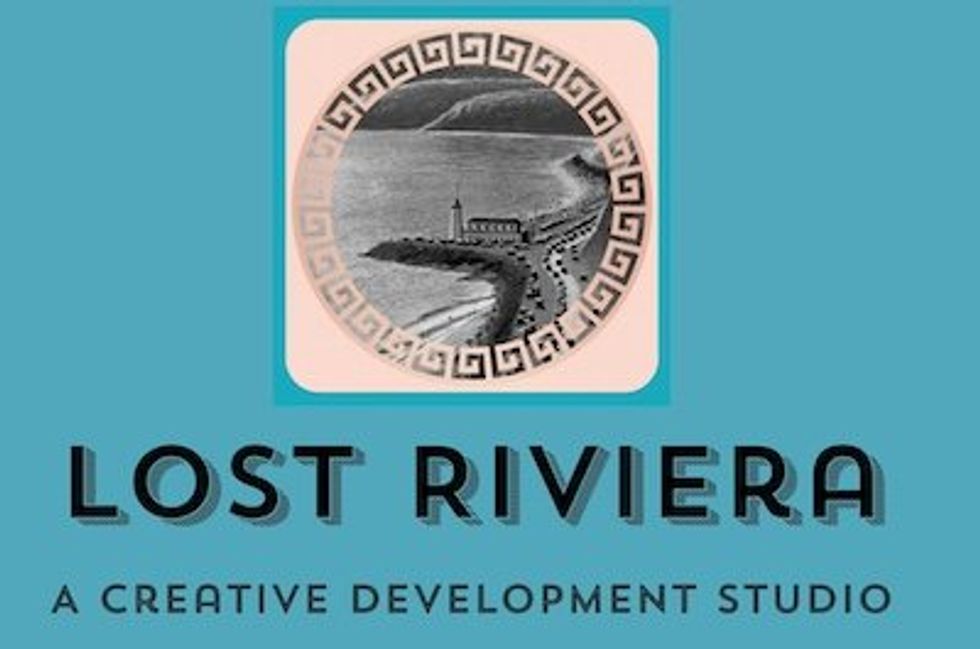
This is the easiest one to start and the hardest one to finish. Can you write a story that’s 70,000-100,000 words? Can you sustain a reader’s interest that long? Do you know how to make it a page turner? Will your characters be memorable? Can you world build? Make me cry? Make me laugh? Yikes, it's hard. But you should try it!
Full disclosure: As soon as I can get out from under my current writing obligations, I plan to finish more than one novel! We need non-woke YA. Non-cringe romance. Contemporary fiction that is not hamstrung by Bechdel tests, sensitivity readers, and all that other fatal poison.
If you’re intimidated, approach a full-length fiction manuscript as a learning exercise. The “craft of fiction” is sort of weirdly unlearnable. I’ve tried. Do classes and writing workshops work? I don’t know. I do know a friend who has spent something like the last 12 years in a writing workshop working on a single book.
If you’re a writer, don’t do that. Gaze too long into your navel, and your navel gazes back at you.
And on that note, excuse me while I ship this!
This essay originally appeared in Peachy Keenan's Extremely Domestic.
Peachy Keenan